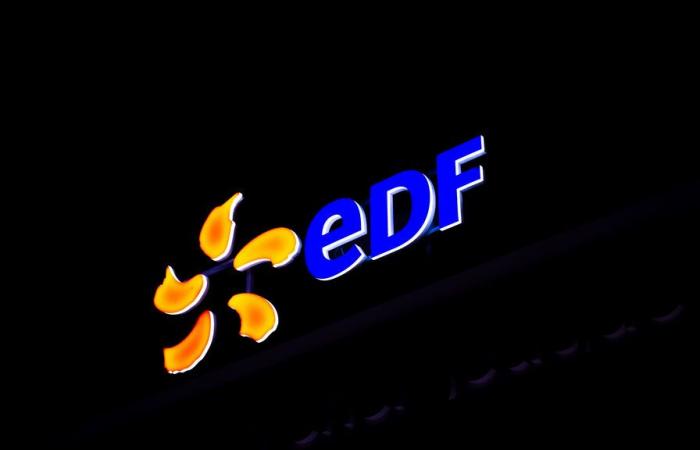
To achieve this objective, convincing consumers of the merits of its commercial policy will however be crucial for EDF, in particular on the price of electricity from 2026, that is to say after the extinction of the regulation mechanism. current Arenh. In front of the media gathered at its Paris headquarters, the group therefore engaged in an argument in defense of the November 2023 agreement concluded with the State on the future regulatory framework for this price, despite the numerous criticisms expressed by industrialists and certain observers against it.
The timing was probably not insignificant as the Minister of the Economy Antoine Armand had mentioned at the Assises de l'Industrie of L'Usine Nouvelle “a public update soon on the state of the agreement and the need or not to re-discuss certain parameters”. “We’ll see” what will emerge from this review clause “but it seems to us that there are many positive things” since the conclusion of this agreement, declared Marc Benayoun.
Signatures of new letters of intent expected for long-term contracts
The point of the agreement on which the manager appeared least comfortable concerns long-term contracts with electro-intensive industrialists, nuclear production allocation contracts (CAPN). In the columns of L'Usine Nouvelle in October, Nicolas de Warren, the president of the association of energy-intensive industrialists Uniden, called for the subject to be addressed before the first anniversary of the agreement. For the moment, five letters of intent have been signed for just over 10 TWh of annual consumption. Their duration is generally 15 years but one of these contracts is planned for 18 years.
“We have reached the end of the negotiations with these five clients but we have other very advanced negotiations with signatures expected within a few days and 24 negotiations initiated in total,” said Marc Benayoun. The fact remains that these letters of intent are not yet contracts signed in black and white. A remark which seemed to irritate the EDF representative somewhat. “These are quasi-contracts! These documents are very structured and determine almost all the economic criteria of the contract, including the advance payment. Certainly, these are still letters of intent because the final signature corresponds to the moment when customers must pay the advance in advance, so they want it to be as close as possible to the start of deliveries, rather towards the end of 2025,” he argued.
Discounted offer for the second phase of Exeltium
Some long-term contracts will begin on January 1, 2026, but others will begin later because they concern industrial projects which have yet to see the light of day or ramp up. A good connoisseur of the matter was also surprised by L'Usine Nouvelle at EDF's use of the letter of intent signed with GravitHy to show its desire to respect the agreement, to the extent that this industrial site is not It's not yet built. However, the existing industrial fabric also needs low prices.
In an interview given to Echosthe delegated minister in charge of energy Olga Givernet had also declared that it would be necessary “ten” letters of intent for long-term contracts. According to our expert on the matter, the agreement last November even provided for such a commercial offer of up to 40TWh of consumption. “This order of magnitude of 40 TWh corresponds to the demand of electro-intensive industries. The idea of long-term contracts is to secure half of these volumes, i.e. 20TWh or a little more. This is consistent with the wish expressed by Deputy Minister Olga Givernet. The contracts signed today represent half of this target. said Marc Benayoun. The 2023 agreement also contains the implementation of the second phase of the contract between EDF and the consortium of electro-intensive industrialists Exeltium. “We submitted a firm offer a few weeks ago. We will see if it is accepted or not,” said Marc Benayoun on this subject.
“We are beyond our expectations on medium-term contracts”
EDF is more satisfied with another tool provided for in the November 2023 agreement, forward contracts for supply over a four or five year horizon. Around 3,600 contracts of this type have been signed for a volume of around 17 TWh in 2028 and 9TWh until 2029. EDF highlights an average contract duration for its customers of 41 months in 2024, or more than three years. “Customers sign on average for one more year compared to before. We are beyond our expectations on medium-term contracts because we are talking about a new offer that did not exist before. A few years ago, no one bought electricity for more than three years in France and it was most often two years. welcomed Marc Benayoun.
While the proportion of these contracts signed with manufacturers was a source of concern, “a little more than half” concern companies in this sector, assured Nelly Recrosio, EDF director for the business customer segment. These contracts are also concluded in a context “attractive price level”underlined Marc Benayoun. At the end of October, prices on the wholesale market were between 62 and 65 euros per megawatt hour for delivery between 2026 and 2029.
Major electricity exports in 2024
The drop in prices and demand, driven by energy efficiency and the drop in production among electro-intensive industries, makes the 2023 agreement demanding for EDF, recalled Marc Benayoun. “This requires us to optimize our industrial system and our costs,” he estimated. It is in particular this drop in demand which explains EDF's estimate of net electricity exports of 90 TWh at the end of 2024, “a record figure for the French electricity system”, selon Marc Benayoun.
Not sure, however, that this exercise in self-satisfaction by EDF will convince industrialists. During October, the CLEEE association of large electricity and gas consumers welcomed in a press release the removal in the Finance Committee of the mechanism for taxing EDF overpayments in the event of a market surge. This is provided for in the initial text of the budget for 2025 and also arises from the agreement of November 2023. Described as “not very protective”, the system “will not protect us from the next crisis” in the price of electricity, criticized the association. In session, the deputies finally rejected the new mechanism at the end of October. In a press release published at the beginning of November, the Independent French Association of Electricity and Gas (Afieg), which brings together alternative energy companies such as TotalEnergies Electricité and Gaz France or the French subsidiaries of Vattenfall and Alpiq, affirms for its part that the implementation implementation of the agreement between the State and EDF does not “make it possible today to reconcile consumer interests, coverage of historic nuclear costs and respected competition on the retail market”.
One thing is certain, EDF will in any case offer regulated electricity prices for all small businesses from February 2025, in accordance with a law promulgated last April. But the extent of the movement of customers towards this regulated sales price “is very difficult” to anticipate, according to Nelly Recrosio. “This return will take place gradually because a professional customer with a market offer must pay compensation for early termination. This will also depend on the pricing positioning of this regulated sales price in relation to market offers.she concluded.





